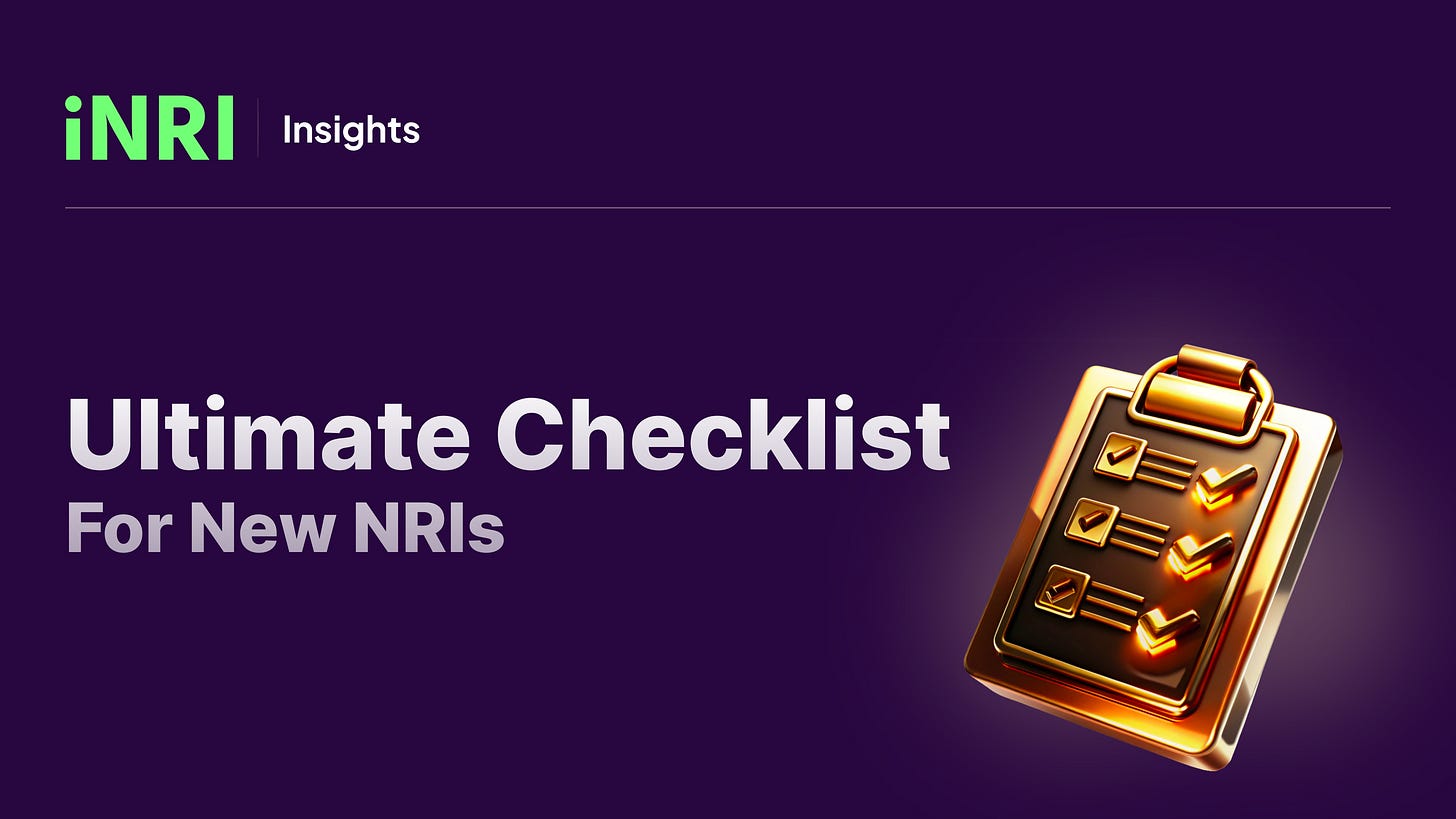Ultimate Checklist for New NRIs
September marks the beginning of fall intake for many international students. Did you know that 2.5 million Indians migrate overseas every year, making us the largest group of migrants globally? Of this, around 1.3 million are students starting new academic journeys abroad.
Whether you're heading overseas for education or career opportunities, a smooth transition is key. And if you're moving, it's important to know how your change in residency will affect your Indian financial investments. As a new non-resident Indian (NRI), you'll need to follow different rules and regulations.
To help you get started, we’ve created a comprehensive checklist that covers everything you need to know to secure your financial future as you take this next big step.
Before You Leave:
Aadhaar Update: With recent changes in KYC compliance, having an Aadhaar card is essential for various financial transactions in India. Ensure you have a valid Aadhaar before you leave.
Digital Banking: Ensure your bank provides online services so that you can manage your account remotely without frequent in-person visits.
PPF Account: As an NRI, you cannot open a new Public Provident Fund (PPF) account but can continue managing an existing one. Opening it before you leave is an excellent long-term investment strategy.
Power of Attorney: Appoint a trusted individual as your Power of Attorney (POA) to handle legal matters or property transactions in your absence.
Property Management: Companies like Magicbricks and Nestaway can manage your property, helping you avoid relying on friends or family for maintenance and tenant issues.
Sovereign Gold Bonds: Consider investing in SGBs before your residential status changes. NRIs can continue to hold these bonds until maturity. However, they can’t invest in new ones.
After You Settle Down:
KYC and FATCA: Once your status changes to NRI, update your residential status on the income tax portal. Also, update your KYC to start investing in India. U.S. NRIs should also comply with FATCA regulations.
Bank Accounts: You must convert your Indian savings accounts to NRO accounts. Non-compliance could result in hefty penalties, so notify your bank in advance.
NRE Account: If you plan to repatriate funds to India or invest in Indian assets, an NRE account allows for tax-free interest and easy fund transfers.
PIS/PINS Account: Open a PIS/PINS account to invest in Indian securities from your NRE bank account. Alternatively, you can invest in mutual funds through the folio route through iNRI.
Link Investments: Connect your investments to your NRO bank account for easy management.
Healthcare Insurance: Consider purchasing healthcare insurance, especially if you're moving to a country without universal healthcare.
Here are some FAQs on the Checklist
1. Is it mandatory to apply for an Aadhaar?
No, it is not mandatory to apply for an Aadhaar. However, investing in Indian markets requires you to validate your KYC status, and Aadhaar can soon be crucial in validating your KYC status. It can ease your workload, as you won’t need to verify your KYC status each time you invest in a new fund house.
2. How to check NRI status in India?
To know your residential status in India, you will need to check your residential status in India by calculating your stay in India. A financial year in India starts from 1st of April to 31st of March in the following year.
To consider yourself as an NRI,
You need to be an Indian citizen residing abroad
Your stay in India should have been less than 182 days in a financial year (or)
Your stay in India for the current financial year should be less than 60 days and less than 365 days in the preceding four financial years.
3. Is it mandatory to declare NRI status in India?
Yes, it is mandatory to declare your NRI status in India. If you are an NRI indulging in any of the following activities, it is necessary that you declare your NRI status,
Filing of ITR: If you receive regular income in the form of rent, royalty or such other income requiring filing of taxes.
Opening Non-resident Bank Account: When your residential status changes you can no longer continue holding resident bank accounts. Hence you need to declare your NRI status to open an NRI account.
Investments: To invest in mutual fund investments in India, you need to validate your KYC by updating your residential status.
DTAA: To avail of any DTAA benefits, it is essential that you declare yourself as an NRI.
4. How can I convert my PAN card to NRI status?
Upon becoming an NRI, you will need to head to the income tax web-portal and update your residential status. The PAN shall remain automatically updated once your residential status changes to NRI.
Conclusion
The above checklist is not exhaustive, and depending on the situation, you might need to take care of other pressing issues. However, opening an NRO bank account, renewal of passport, updating your KYC, and applying for an Aadhaar are important and will remain helpful in your Indian investment journey.
Best,
iNRI Team


